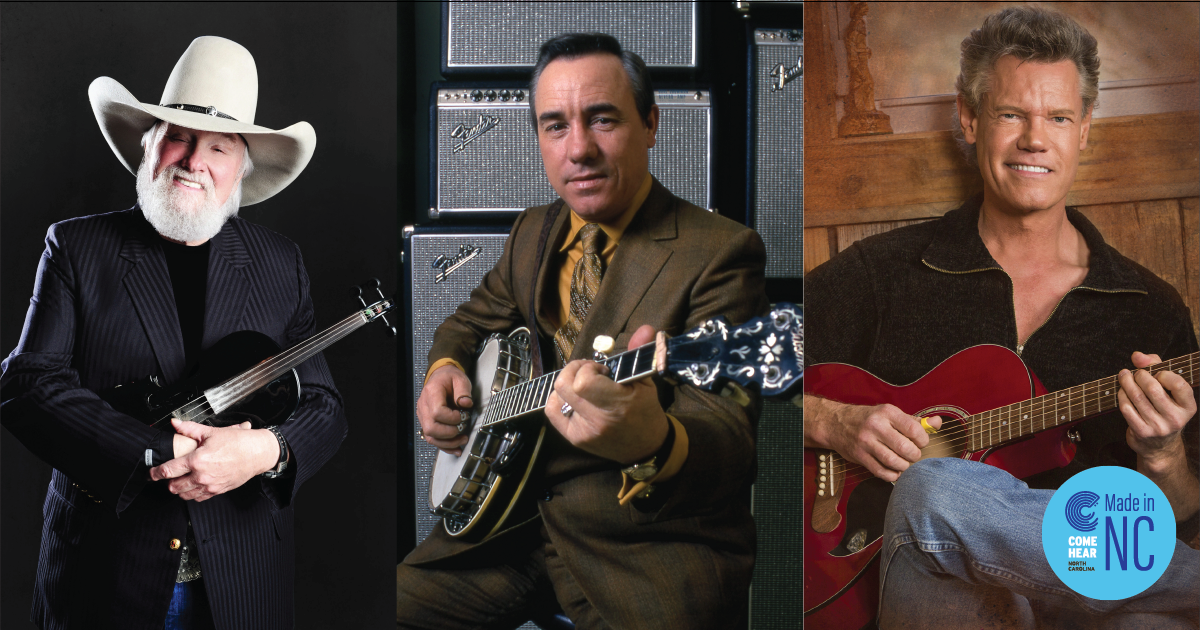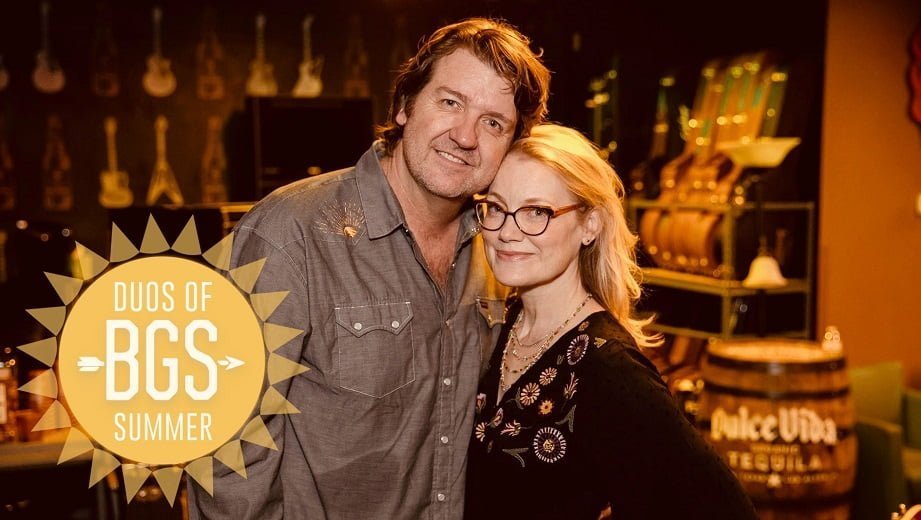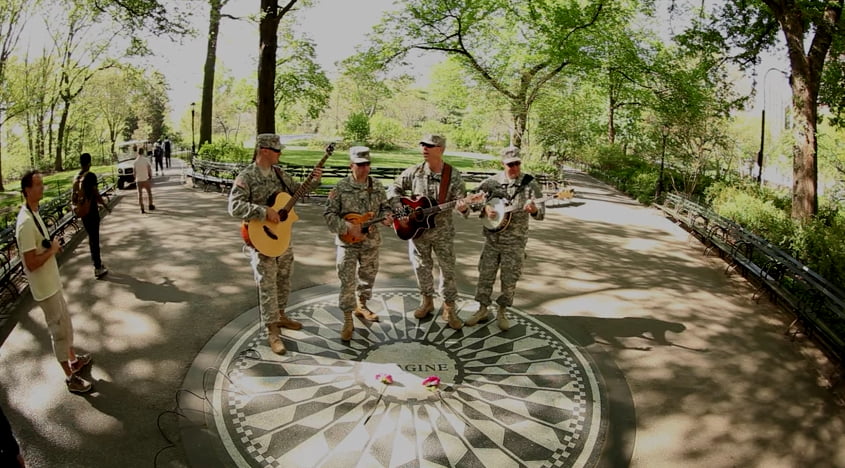When it comes to bluegrass and classic country music, North Carolina offers a talent pool that rivals any other state. It’s also red hot on the modern country scene, with stars like Eric Church, Luke Combs, and Scotty McCreery hailing from the Tarheel State. Some would say these contemporary musicians are following in the footsteps of these 10 North Carolina-born artists who made a mark in country music history.
Earl Scruggs
b. 1924 in Flint Hill, N.C.
Without the banjo innovations of Earl Scruggs in Bill Monroe’s band, would we even have bluegrass? “The Ballad of Jed Clampett” and “Foggy Mountain Breakdown” are obvious Flatt & Scruggs classics, though his catalog runs deep — and his creativity blossomed further in the ’70s with the Earl Scruggs Revue. The city of Shelby has renovated its courthouse into the interactive Earl Scruggs Center.
Don Gibson
b. 1928 in Shelby, N.C.
This soft-spoken artist is arguably country music’s first triple threat — a commanding presence as a vocalist, songwriter and guitarist. Born poor, he persisted through every bad break until finally exploding in 1958 with “Oh Lonesome Me” and an Opry membership. He remained active on the charts for two more decades. Shelby has honored him, as well, with a live music venue, the Don Gibson Theater.
Fred Foster
b. 1931 in Rutherford County, N.C.
Behind the scenes, it’s hard to fathom just how well-connected Fred Foster was. He founded Monument Records in 1958 and produced all of Roy Orbison’s early hits on that label, gave Dolly Parton a publishing and label deal when she first moved to town, and landed a co-writing credit on Kris Kristofferson’s iconic “Me and Bobby McGee.” He was inducted into the Country Music Hall of Fame in 2016.
Stonewall Jackson
b. 1932 in Emerson, N.C.
After an impressive audition but no track record, Stonewall Jackson was invited to join the Grand Ole Opry cast in 1956. For the next 10 years, he charged the country chart with “Life to Go” (written by George Jones), “Waterloo” (a five-week No. 1 in 1959), and “B.J. the DJ” (No. 1 in 1964). He sued Opry for age discrimination in 2006, then after a settlement, resumed appearances on the long-running show.
George Hamilton IV
b. 1937 in Winston-Salem, N.C.
From North Carolina to the world, George Hamilton IV may be the top international ambassador of his generation. His stardom began as a teenager with an unexpected million-selling pop hit, 1956’s “A Rose and a Baby Ruth.” He signed to RCA and the Opry in 1960, setting the foundation for a decade of radio success with “Abilene” (a four-week No. 1 classic), “Break My Mind,” “Early Morning Rain,” and more.
Del Reeves
b. 1932 in Sparta, N.C.
A 1965 novelty smash, “Girl on the Billboard” finally established Del Reeves as a likable country star (after four other record deals didn’t pan out). He’d go on to issue Top 10 singles through 1971, often singing for truckers on tracks like “The Belles of Southern Bell” and “Looking at the World Through a Windshield.” Known for his big personality, he joined the Grand Ole Opry cast in 1966.
Donna Fargo
b. 1945 in Mount Airy, N.C.
A leading artist of the 1970s, Donna Fargo won a Grammy, an ACM Award and a CMA Award for her 1972 breakout hit, “Happiest Girl in the Whole USA.” The feel-good release reached No. 1, as did her next three singles — and she wrote them all. Fargo taught high school English courses before exploring songwriting. By 1979, she’d notched 16 Top 10 country hits and landed her own syndicated variety show.
Ronnie Milsap
b. 1943 in Robbinsville, N.C.
Easily one of the most identifiable voices in country music, Ronnie Milsap dazzled listeners with charisma, musical talent, and an impeccable ear for hearing a hit. Inspired by R&B and country music alike, the entertainer shared his soul with fans for decades, with an astonishing 49 Top 10 country singles on RCA. One of the best, “Smoky Mountain Rain,” topped the chart in December 1980.
Charlie Daniels
b. 1936 in Wilmington, N.C.
Four decades later, Charlie Daniels Band is synonymous with “The Devil Went Down to Georgia.” Arguably the most famous fiddling song in the country music canon, the single won a Grammy and led to a guest spot in the era-defining film, Urban Cowboy. A member of the Opry and the Country Music Hall of Fame, Daniels remained a highly visible entertainer, especially eager to support causes for veterans and children.
Randy Travis
b. 1959 in Marshville, N.C.
In the mid ’80s, Randy Travis was transformed from a dish-washing hopeful to a country music sensation. Plucked from the kitchen of the Nashville Palace onto the TNN airwaves, Travis was then reportedly rejected by every label in Nashville until finally signing to Warner Bros. And then “1982” changed everything. His resonant voice, though largely silenced now, will live on forever and ever, amen.
Photo of Charlie Daniels courtesy of Charlie Daniels Band, Inc.; Photo of Earl Scruggs by Al Clayton, provided by Sony Music; Photo of Randy Travis provided by 117 Entertainment Group.
Discover more about the North Carolina music scene and #NCMusicMonth through Come Hear North Carolina’s website and on Instagram at @comehearnc.


